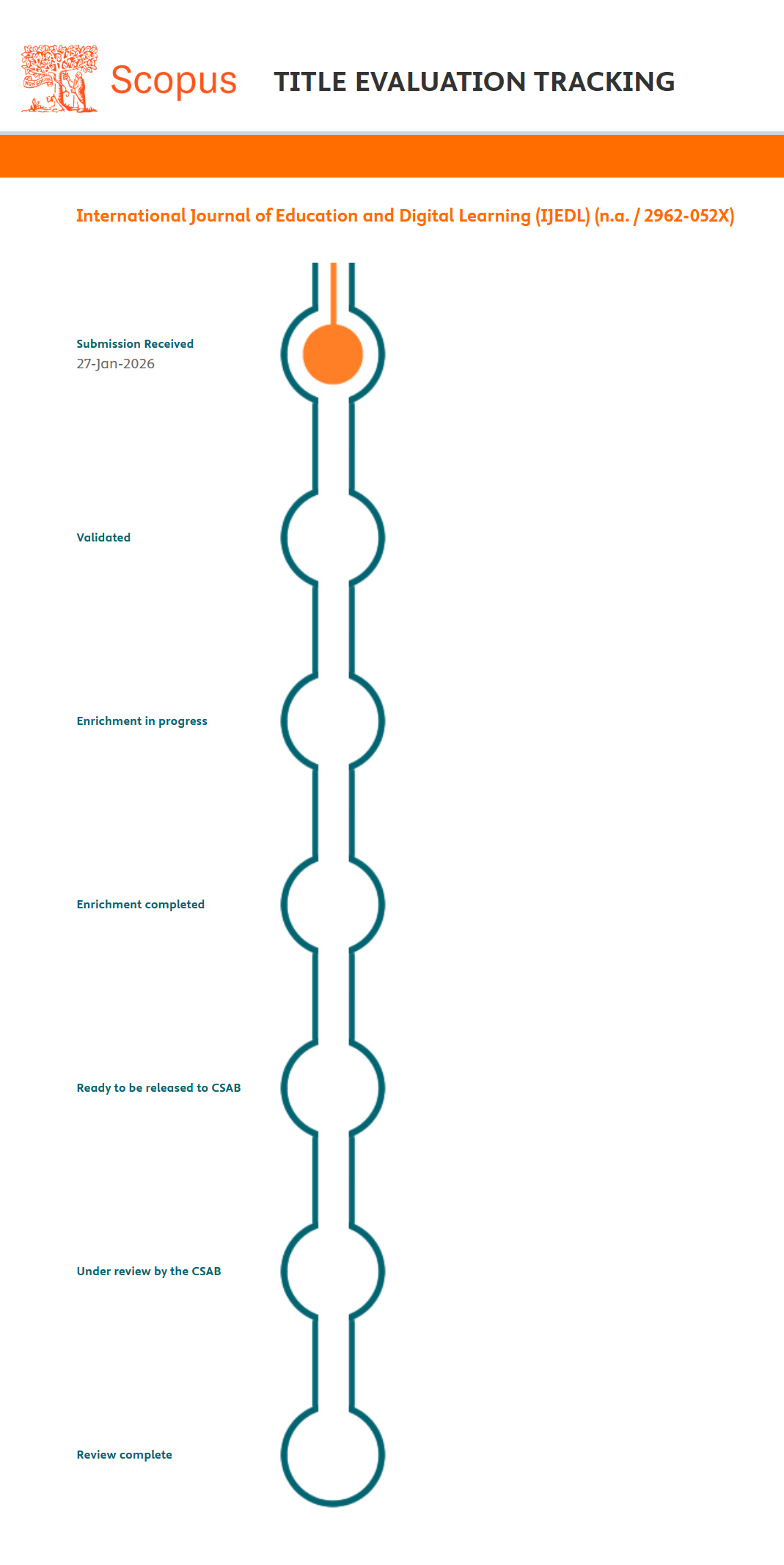Why Digital Learning is the Key to the Future of Education
DOI:
https://doi.org/10.47353/ijedl.v3i4.261Keywords:
Digital Learning, Education, Future of Education, E-Learning, AccessibilityAbstract
Digital learning has emerged as a transformative force in the field of education, enabling access to knowledge and skills in ways that were once unimaginable. With the rapid advancement of technology, digital learning is increasingly recognized as the key to the future of education, offering an innovative approach to meet the demands of 21st-century learners. This article examines why digital learning is pivotal to the future of education, focusing on its potential to enhance accessibility, improve personalized learning experiences, and foster lifelong learning. By exploring various digital tools and platforms such as e-learning, MOOCs, mobile apps, and virtual classrooms, the article highlights how digital learning can bridge geographical, economic, and social barriers to education. Additionally, it discusses the benefits of digital learning in enhancing student engagement, supporting diverse learning styles, and providing flexible learning opportunities that cater to individual needs. Despite its promise, the article also addresses the challenges associated with digital learning, such as the digital divide, lack of infrastructure, and the need for digital literacy. Finally, it outlines the importance of adopting policies that support the growth and sustainability of digital learning in the educational ecosystem.
Downloads
References
Allen, I.E., & Seaman, J. (2016). Online learning in the United States: 2016. Babson Survey Research Group.
Anderson, T., & Dron, J. (2014). Three generations of distance education pedagogy. The International Review of Research in Open and Distributed Learning, 12(3), 80-97.
Anderson, T., et al. (2014). Teaching in an online learning environment: A qualitative study. Journal of Educational Technology, 31(2), 91-107.
Azmi, A., & Zainudin, Z. (2024). The effectiveness of digital learning tools in modern classrooms. Journal of Educational Innovation, 45(1), 110-123.
Bill & Melinda Gates Foundation. (2013). The role of digital learning in improving educational outcomes. Gates Foundation Report.
Cavanaugh, C. (2004). The effectiveness of online learning: A review of the literature. The International Review of Research in Open and Distributed Learning, 5(2), 1-14.
Clark, C. (2020). Accessibility and the rise of mobile learning: Implications for education. Journal of Learning Technologies, 15(3), 200-215.
Cohn, S., & Roper, A. (2021). Mobile learning and its impact on student engagement. The International Journal of Mobile Learning and Organisation, 15(2), 115-130.
Hattie, J. (2021). Visible Learning for Teachers: Maximizing Impact on Learning. Routledge.
Koller, D., et al. (2013). The effectiveness of online learning in higher education. International Journal of Educational Technology in Higher Education, 10(1), 45-56.
Lindawali, E. (2023). The role of adaptive learning systems in digital education. Educational Technologies Journal, 29(2), 67-79.
Muldrow, J. (2020). The impact of adaptive learning technologies on student engagement. Journal of Educational Psychology, 112(3), 405-418.
McKinsey & Company. (2020). How the COVID-19 pandemic has transformed education. McKinsey Report.
Munzillah, S., & Budiyono, Y. (2024). Cooperative learning as a strategy for enhancing digital learning outcomes. Journal of Collaborative Learning, 16(1), 12-22.
Muralidharan, K., et al. (2017). The impact of mobile learning in rural areas: A case study. Journal of Development Economics, 26(4), 147-160.
Nasution, R., et al. (2023). The role of educational psychology in modern learning environments. Journal of Educational Psychology, 61(2), 12-28.
Nurmanto, B., et al. (2022). Problem-based learning and its cognitive impact on students. Journal of Education and Psychology, 30(4), 290-305.
Purwowidodo, H., & Zaini, Z. (2023). Digital learning tools and their role in modern education systems. Journal of Digital Education, 22(1), 56-70.
Ryan, R.M., & Deci, E.L. (2000). Self-determination theory and the facilitation of intrinsic motivation, social development, and well-being. American Psychologist, 55(1), 68-78.
Salmi, J. (2016). The promise of MOOCs: Opportunities and challenges for higher education. Higher Education Review, 35(2), 142-156.
Siemens, G. (2015). Connectivism: A learning theory for the digital age. International Journal of Instructional Technology and Distance Learning, 2(1), 3-10.
UNESCO. (2020). Education and the COVID-19 pandemic: Challenges and opportunities. UNESCO Report.
World Bank. (2018). The role of technology in promoting educational access and quality. World Bank Education Report.
Zawacki-Richter, O., et al. (2009). Systematic review of research on online teaching and learning. International Review of Research in Open and Distributed Learning, 10(1), 1-23.
Downloads
Published
How to Cite
Issue
Section
License
Copyright (c) 2025 Opan Arifudin

This work is licensed under a Creative Commons Attribution-ShareAlike 4.0 International License.












